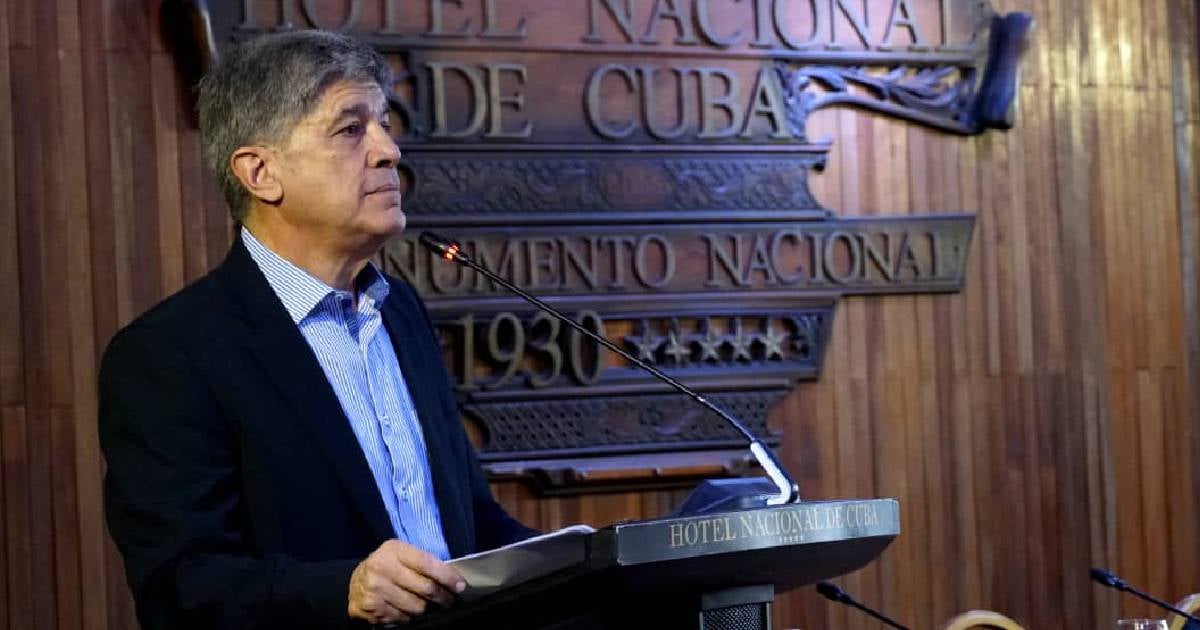
Related videos:
A representative of the Cuban government has officially expressed concern over Donald Trump's return to the presidency of the United States, noting the negative effects this could have on the already weakened economy of the island.
The statements were made during a dialogue forum on the relations between Havana and Washington, marking the tenth anniversary of the beginning of the so-called thaw, by the Cuban Deputy Minister of Foreign Affairs, Carlos Fernández de Cossío.
According to the official cited by the Efe agency, it is concerning "the impact that increased hostility from the U.S. could have on our economy, and in particular, the effect it may have on the standard of living of the population, which has proven to be very powerful and capable of effectively causing harm."
According to their statements, the most catastrophic scenario for the relationship between the United States and Cuba in the new Trump era is being driven by certain Cuban exiles in Florida, although they suggested that, in general, it is "not likely to be of interest" to the average American citizen.
The deputy minister expressed optimism about the upcoming scenario. "We know we will be able to survive. In four years, the Trump administration will be over, and Cuba, socialist Cuba, will still be here," he asserted, echoing the remarks of leader Miguel Díaz-Canel, who recently stated that while this outcome was anticipated, the country is ready to face it.
Fernández de Cossío had words for the outgoing administration of President Joe Biden, expressing regret that he maintained the bulk of the measures implemented by Trump during his first term.
"The U.S. knows that Cuba does not sponsor terrorism. However, it is also well aware of the damage it can cause by keeping Cuba on the list, and that is the goal it has pursued," he asserted.
During his first term, Trump significantly tightened sanctions against Cuba, implementing over 240 restrictive measures that impacted key sectors of the Cuban economy, such as tourism, remittances, and trade.
Regarding the thaw in relations, which marks its tenth anniversary this Tuesday since its announcement by Presidents Barack Obama and Raúl Castro, Fernández de Cossío stated: “Cuba fulfilled all the commitments it undertook, as our goal was to make progress. The U.S. government violated almost all of them. Therefore, it is very difficult to say that Cuba was the one at fault when that happened.”
The statements from the Cuban deputy minister come a day after U.S. Under Secretary of State Brian Nichols told Martí Noticias that it was a "missed opportunity," criticizing the lack of significant progress in human rights and democratic reforms by the Cuban regime.
Frequently Asked Questions about the Economic Effects of Trump's Return and Cuba's Stance
Why is the Cuban government concerned about Trump's return to the presidency of the United States?
The Cuban government, through Deputy Foreign Minister Carlos Fernández de Cossío, has expressed its concern over the return of Donald Trump to the presidency due to the potential negative effects on the Cuban economy. During his first term, Trump implemented more than 240 restrictive measures that impacted key sectors such as tourism and remittances, and there are fears that increased hostility from the U.S. could further harm the island's economy.
How does Cuba plan to address Trump's policies?
The Cuban government, led by Miguel Díaz-Canel, has stated that it is prepared to withstand an increase in aggression from the United States and will not yield to attempts at interference. Cuba will promote development through creativity and innovation, while remaining committed to its socialist path. Díaz-Canel has affirmed that the country is ready to face this new scenario with equanimity, vigilance, and without fear.
What measures could Trump implement against Cuba during his second term?
Trump is expected to intensify economic and diplomatic sanctions against Cuba, reversing the measures of openness implemented by the Biden administration. This could involve increasing restrictions on remittances, trade, and the designation of Cuba as a state sponsor of terrorism, further complicating bilateral relations. These actions could exacerbate the economic crisis in Cuba.
What has been Díaz-Canel's response to U.S. policies?
Miguel Díaz-Canel has taken a critical stance towards U.S. policies, particularly the economic embargo, which he blames for many internal problems in Cuba. He has reiterated that Cuba will not yield to external pressures and will continue to defend its sovereignty and independence. Díaz-Canel has also expressed a willingness to engage in dialogue with the U.S., provided it occurs within a framework of respect and without impositions.
Filed under: